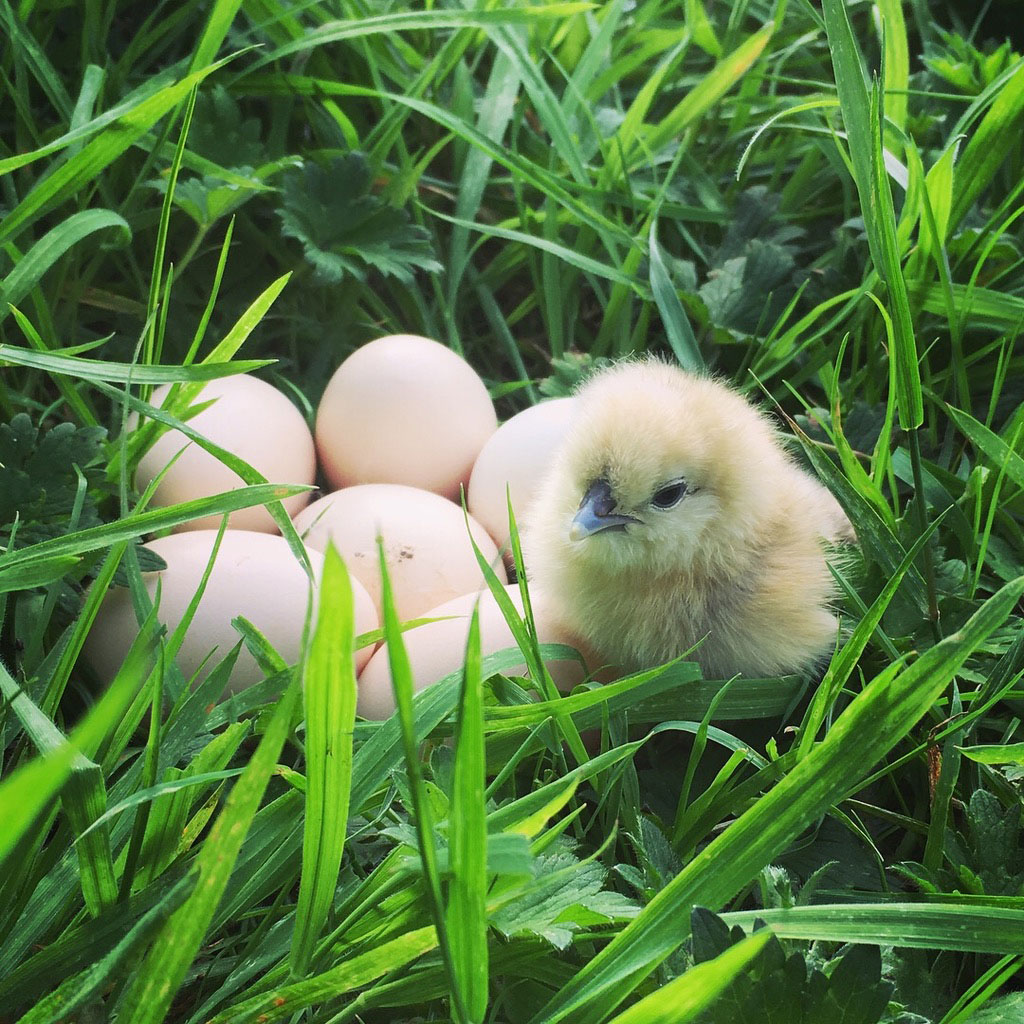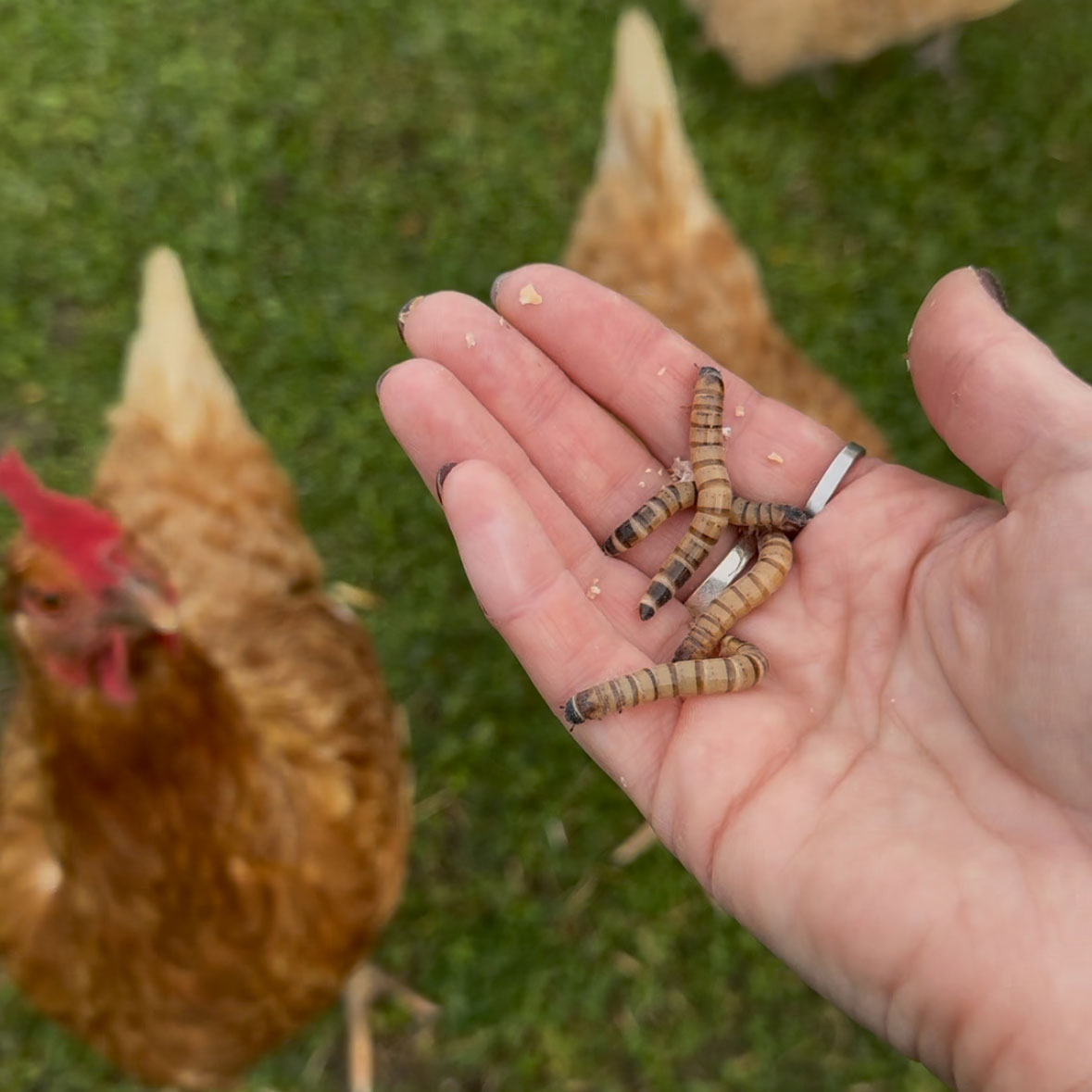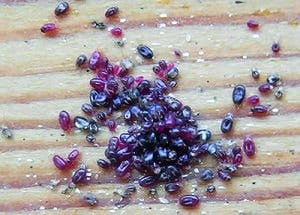


How To Treat Chickens For Red Mites and other Infestations?
How Do I Treat My Chickens For Red Mites?
Getting mites in your coop is pretty heart breaking, your poor hens will be itchy and uncomfortable. Red Mites along with other mites live on the bird but can also live in the wood of the house and can also reside in their bedding. They can cause skin rashes and irritations, lameness, diarrhoea and can even be fatal if left untreated.
Red Mites, What You need To Know
First of all don’t be afraid to glove up and hit them hard, red mites can’t live on humans so you are safe to tackle the issue head on.
Red mite are tiny but will be visible on the birds, they are around the size of a pinprick, grey initially and then turn red after they’ve fed on your hen’s blood!
They live inside the chicken coop, lay their eggs within crevices and cracks, and feed on all parts of your poor chickens whilst they sleep at night including: blood, the feathers, the skin and the scales of your chicken’s skin!
Red mite will take hold of your coop very quickly if left untreated. After being laid, the mite larvae hatch within 2-3 days and are fully grown adults within 7 days, they can then live for 8 months!

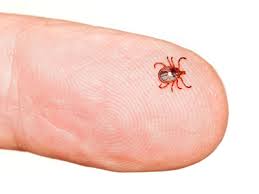
How Do I know if I Have Red Mite?
Red mite is pretty easy to see on your hens, check their back end and look under the feather fluff on the skin, if you have mites you will see them. You should check your hens over once every month or so to ensure they are well and looking for
mites is key when you do a health check. There are other signs that you may notice that might lead you to want to have a look for mites on your bird.
-
- Reduced egg production
- Lethargic & unhappy birds
- Weight loss
- General poor health, your chickens could develop anaemia due to the blood loss – be on the lookout for pale, floppy crowns as a sign.
- Your chickens may not want to be put away at night since the mites attack in the evening, they are reluctant to enter the coop for fear of being nibbled.
Some of these symptoms could be related to other issues but if you notice any of them it is best to give your hens a good check over.
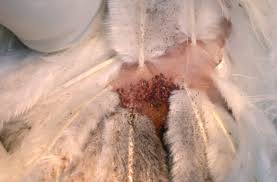
Can I Treat Red Mite?
YES!
Here is out 3 step guide to treating red mites in your poultry and house.
Step 1.
Take all your chickens out of the house and run and put the girls somewhere temporary for a few days, try to limit the places they go so as not to spread the infestation around even more.
Give each hen a good wash in warm water using a medicated pet shampoo, make sure you rinse each bird thoroughly and pay special attention to their bottom area as this is where mites like to gather. Blow dry the hens fully then cover them in Natural DE powder using gloves you can massage it into their feather base to ensure it makes contact with the skin. Use a DE Puffer for easy application, simply puff the powder directly on to the hen with no mess or fuss.
Step 2
Remove all dirty litter form the hen house and then scrub the house down with a poultry cleanser inside and out, use warm water and a good strong scrubbing brush.
Then, using a Virkon sachet diluted into 5ltrs of water in a garden sprayer, spray generously to disinfect the entire coop inside and out, get in all the corners and at the same time do the entire run ensuring the Virkon solution gets everywhere, (use gloves and wear a mask). Virkon is fantastic we use it on our farm and it will kill everything.
Step 3
Once you have done this you will need to let the house and run dry out unoccupied for 24 hours, you can then put fresh wood shavings back in your coop, do not use straw! Straw can actually contain mites and could bring mites back into your now lovely clean environment. Sawdust or wood shavings are heat treated when sealed killing off all mites and bugs.
Repeat the entire cleaning regime every 2 months or so until you are on top of it and then to maintain good cleanliness going forward repeat the whole process once every 4-5 months or if you spot another mite. A really deep clean will prevent mites taking hold and performed regularly means you should never have an issue with mites again. Ensure you provide your hens with a dust bath that has been treated with Natural DE powder, this will allow your hens to naturally keep mites at bay by dust bathing in this mixture of sand and DE powder. We also recommend applying DE powder direct to you hen with a puffer bottle once every month going forward.

